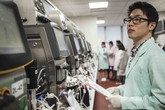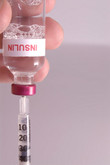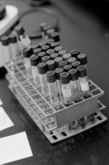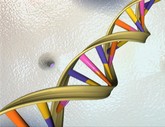Biosimilars
Assessing analytical comparability for G-CSF biosimilars
According to the US Food and Drug Administration (FDA), a biosimilar is a biological product shown to be ‘highly similar to an FDA-approved biological product’, and which ‘has no clinically meaningful differences in terms of safety and effectiveness’. Only minor differences in clinically inactive components are allowable in biosimilars. Biosimilars of approved biologicals at the end of their patent life are expected to cost less but be as safe and effective for licensed clinical uses. To date, FDA has approved four biosimilars [1], while the European Union has approved more than 20 biosimilars [2].
Portuguese dermatologists’ position on the use of biosimilars in psoriasis
Biologicals have revolutionized the treatment of psoriasis and psoriatic arthritis. However, they impose a heavy burden on the healthcare system due to their high costs. In 2013, 27% of pharmaceutical sales were for biologicals. In 2015, two of the top five best-selling therapies were tumour necrosis factor-alpha (TNF-α) inhibitors, adalimumab and etanercept. Biosimilars, which may cost 25−30% less than the originator biological, thus represent a significant opportunity for savings to be made by both patients and healthcare systems.
Extrapolation of indications for biosimilar infliximab and etanercept
Biosimilar infliximab (Inflectra/Remsima) was approved in Europe in September 2013 for the same indications as the originator product (Remicade). More recently, biosimilar etanercept (Benepali) was approved in Europe in January 2016 for the same indications as the originator product (Enbrel) [1]. Researchers from the National Health Service (NHS) Foundation Trust and King’s College London, discuss the extrapolation of the indications for the biosimilars [2].
EMA approves biosimilars of insulin glargine and teriparatide
The European Medicines Agency’s (EMA) Committee for Medicinal Products for Human Use (CHMP) announced on 11 November 2016 that it had recommended granting of marketing authorization for an insulin glargine biosimilar and two teriparatide biosimilars.
Celltrion submits trastuzumab biosimilar application to EMA
South Korean biotechnology company Celltrion has, according to The Korea Herald, submitted another biosimilar application to the European Medicines Agency (EMA).
Trials for biosimilar etanercept
Biosimilar etanercept was approved in Europe in January 2016 [1]. Researchers from the National Health Service (NHS) Foundation Trust and King’s College London, discuss the trials that led to the approval of biosimilar etanercept [2].
Differences in efficacy assessment in clinical trials for biosimilars
Clinical trial design should be standardized according to researchers from the University of Massachusetts, USA and Newcastle University in the UK [1]. They argue that a ‘standard clinical trial design be adopted for all biosimilars of a particular [originator biological] in a given disease’.
FDA accepts application for pegfilgrastim biosimilar from Coherus
Coherus BioSciences (Coherus) announced on 6 October 2016 that the US Food and Drug Administration (FDA) had accepted for review a Biologics License Application (BLA) for the company’s pegfilgrastim biosimilar candidate (CHS-1701).
Biosimilars of natalizumab
Natalizumab is a humanized monoclonal antibody against the cell adhesion molecule α4-integrin. Natalizumab is believed to work by reducing the ability of inflammatory immune cells to attach to and pass through the cell layers lining the intestines and blood–brain barrier. Natalizumab is indicated for the treatment of multiple sclerosis (US and Europe) and Crohn’s disease (US).
Trials for biosimilar infliximab
Biosimilar infliximab was launched in the UK in March 2015. Researchers from the National Health Service (NHS) Foundation Trust and King’s College London, discuss the trials that led to the approval of biosimilar infliximab [1].












